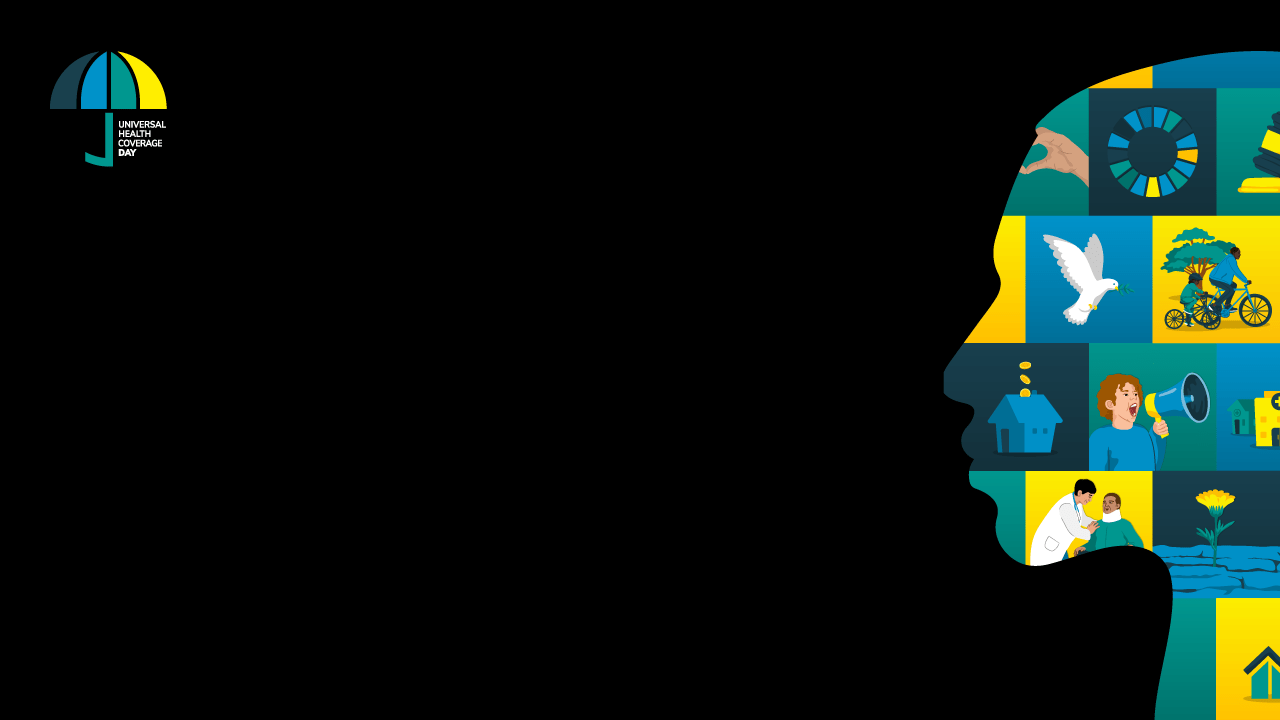On 12 December, Springer Nature hosts an awareness campaign for International Universal Health Coverage Day (UHCD24), with this year’s theme being “Health: It’s on the government!”. Set up by the United Nations to mark the anniversary of the historical unanimous endorsement of UHC in 2012, this day is now an annual celebration to share the stories of the millions of people still waiting for health, to call on leaders to invest in health for all and leave no one behind.
Universal health coverage (UHC) refers to the ability of all individuals and communities to access quality health care without suffering undue financial hardships. Progress towards UHC has been monitored by the World Health Organization through the essential service coverage and financial protection from large household expenditure on health, or catastrophic health expenditure (CHE). In 2019, out-of-pocket health spending dragged 344 million people further into extreme poverty and 1.3 billion into relative poverty. In total, in 2019, 2 billion people faced any form of financial hardship (catastrophic, impoverishing or both).
Springer Nature publishes a range of collections and titles on research and strategies to help monitor progress towards UHC, including handbooks with extensive discussions and historical insights into the UHC movement.
Highlights from Springer Nature publishers
A variety of research articles published in Springer Nature journals highlight the complexity of topics and areas of study aimed at reaching UHC. For instance, a systematic review stresses the importance of Resilient health systems (RHSs) to achieve UHC and health security with a variety of different approaches such as redistribution of health workers, task-shifting, result-based health financing policies, and integrated and multi-sectoral approaches. Achieving UHC requires strong, well-resourced, and functional health systems with a healthy and productive workforce delivering good quality health care across the life course at all levels. While some appreciable progress has been made in the journey towards UHC globally, some regions continue to be left behind.
In Afghanistan, health professionals and hospital directors identify as critical barriers to achieving UHC the lack of quality human resources, the suboptimal management of chronic diseases and trauma, the inaccessibility of necessary health services due to financial hardship, and the unequal accessibility of care. In other settings, like China, despite the efforts to introduce social health insurance schemes and enhance access to basic health care in the population, unmet health care needs remain a critical challenge in ensuring equal access to health care.
As the demand for health care services rises due to population aging, researchers find that the age of households' members correlates with both unmet health needs as well as catastrophic health expenditure. In Cambodia, out-of-pocket healthcare expenditures, which have been increasing over time, disproportionately affect socio-economically disadvantaged households.
Recently, the WHO recognized the importance of oral health for the noncommunicable disease (NCD) agenda and that essential oral health care services should be included in UHC packages. Tracking this integration process in low-, middle- and high-income countries (LMICs) via meaningful indicators becomes, therefore, an essential aspect of monitoring progress toward UHC targets.
Another important goal for achieving UHC is the provision of adequate maternal and newborn health care in LMICs, a goal that entails putting significant numbers of skilled workers in place by 2030.
To highlight the most recent advances and perspectives on UHC, Springer Nature launched several relevant journals' collections. Particularly close to this year’s theme on government health investment is this series launched by BMC Global and Public Health on how health financing may advance UHC and health equity. For UHC to be successful, an effective and well-functioning primary health care (PHC) system supported by a strong health workforce becomes essential to meet the healthcare needs of various population groups in a variety of community settings, including underrepresented populations. Additionally, a particularly crucial role in promoting responsive and tailored healthcare services is played by Community health workers (CHWs), healthcare professionals who provide healthcare services at the community level, directly engaging with the community to foster optimal health and well-being, provide basic health care services, and collaborate with health care organizations and policymakers. A key driver of UHC is immunization, one of the most impactful and cost-effective public health interventions available, especially via pediatric vaccination, which becomes progressively challenging due to the rise of conflicts and humanitarian crises, leaving a significant proportion of children worldwide under- or unvaccinated (Zero-dose children).
Conclusion
The high cost of health services is the primary reason people miss out on essential health care. Health costs and illness should never push people into poverty. Investing in universal health coverage and financial protection not only enhances health and well-being but also fosters greater equity and social cohesion. Achieving UHC as part of the targets the nations of the world set when adopting the SDGs in 2015 is an opportunity to promote a comprehensive and coherent approach to health, focusing on health systems strengthening. Progressing towards UHC represents progress towards any health-related target as well as other developmental goals. Governments are called upon to adopt laws and budgets that guarantee the right to health for everyone, everywhere.
Become an advocate for UHC 2024
The UHC2030, a multistakolder platform bringing together governments, international organizations, global health initiatives, philanthropic foundations, civil society and the private sector has put together a campaign to share the stories of the millions of people still waiting for health, highlight paths and achievements, call on leaders to invest in health, and encourage diverse groups to make commitments to help move the world closer to UHC by 2030. A blog article showcasing the most relevant themes for 2024 and reminding governments that health is good for people and the economy can be read here. Join us in promoting this awareness campaign and this year’s call for national policies and reforms that reduce financial barriers to essential health services.














Please sign in or register for FREE
If you are a registered user on Research Communities by Springer Nature, please sign in